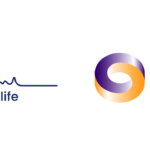Share this post:

Oss, the Netherlands, March 16, 2018 – H. Lundbeck A/S (Lundbeck) and Prexton Therapeutics BV (Prexton) today announce the signing of a definitive agreement in which Lundbeck will acquire Prexton. Under terms of the agreement, Lundbeck will pay €100 million upfront plus €805 million in development and sales milestones.
By acquiring Prexton, Lundbeck will obtain global rights for foliglurax, which currently is in clinical phase II testing for the symptomatic treatment of OFF-time reduction in Parkinson’s disease and dyskinesia (uncontrolled movements) including Levodopa Induced Dyskinesia (LID). First data from the ongoing clinical phase II program is expected to be available in mid-2019.
“We are very excited to be working with Lundbeck, a company with a strong history and focus on diseases of the central nervous system”, said François Conquet, Ph.D., founder and chief executive officer, Prexton. “Lundbeck shares our vision for the development of foliglurax to help patients living with Parkinson’s disease.”
Deal terms
Lundbeck will pay €100 million upfront to the current investors Prexton Therapeutics BV. Furthermore, Lundbeck is required to pay up to €805 million in development, regulatory and sales milestones depending on the successful outcome of certain undisclosed milestones.
Guggenheim Securities is acting as financial advisor and Dechert LLP is serving as legal counsel to Prexton.
About foliglurax
Foliglurax is a small molecule, which works by stimulating a specific glutamatergic target (mGluR4) that activates a compensatory neuronal system in the brain. Pre-clinical studies have demonstrated positive effects in models of Parkinson’s disease. The aim is to treat the motor symptoms of Parkinson’s disease, such as resting tremor and dyskinesia.
About Parkinson’s disease
Parkinson’s disease is a devastating progressive neurological condition affecting around 6 million people worldwide. The disease is caused by the degeneration of dopaminergic brain cells. The main motoric symptoms are resting tremor, muscle rigidity and slowed movement (bradykinesia). Uncontrolled movements (dyskinesia) is a debilitating complication to levodopa use.
Current treatments aim to replace dopamine or to mimic its effects. Patients are administered with the dopamine precursor levodopa. This treatment provides adequate symptomatic relief initially, but over time, it loses efficacy as the disease progresses and patients experience serious debilitating complications, such as increased OFF time and dyskinesia.
About Prexton
Prexton is a biopharmaceutical company founded in 2012 by Francois Conquet and M-Ventures, the corporate venture arm of Merck. Prexton applies a new scientific approach that fully integrates molecular, behavioral and chemistry technologies to address Parkinson’s disease and other brain disorders. Prexton is based in Oss (the Netherlands) and in Geneva (Switzerland). Other major investors include Forbion, Seroba Life Sciences, Sunstone Capital and Ysios Capital.
To download documents, you can right-click on the links above and chose « Save link as… »




